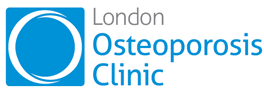A leading doctor is calling for people to take a simple five-minute quiz to reduce the chances of suffering a life-threatening fracture.
Dr Taher Mahmud wants people to mark World Osteoporosis Day on October 20 by finding out if they are at risk of developing the condition which increases the risk of fractures.
“This World Osteoporosis Day I want people to find out about their risk factors so we can all take steps to improve our bone health and say no to fragile bones,” says Dr Mahmud, a consultant rheumatologist at the London Osteoporosis Clinic.
“Many of us take our bones for granted so this is a great opportunity for us to end the inertia surrounding bone health and understand and value our bones so they can support us now and in the future.”
“Many people only find out that they have a loss of bone density after they experience a fracture, by which time the damage has literally been done. We believe it should be identified earlier and, even more importantly, prevented in the first place.
“Osteoporosis is a serious health threat with potentially devasting consequences. In fact, for the over 65s bone fractures of the hip have a higher mortality rate than cancer.”
Around 75,000 people are admitted to hospital each year with a hip fracture, a number which is expected to increase as the population ages.
The mortality rate for hip fractures is high, with about 10% of people dying within a month and about one third dying within a year. Dr Mahmud wants us to give our bone health the same consideration we do our cardiovascular health.
“We know about the things we need to do to keep our heart healthy, but poor bone health can be devastating.
“Recognising individual risk factors, prioritising bone health as we do cardiovascular health and asking for osteoporosis screening or testing upon identification of risk factors are all things we should be doing to promote our long-term bone health.”
There are an estimated 3.5 million people in the UK who suffer from osteoporosis – of 5.2% of the population. Prevalence increases with age and women are significantly more at risk, with 21.9% of women suffering from the condition over the age of 50, compared to 6.7% of men.
“The more people understand about their risk factors and simple changes they can make to their diet and lifestyle, the fewer cases of osteoporosis we will see and we can look at reversing the condition for those who have it.”
Dr Mahmud’s free five-minute quiz – which can be taken here – is available to people to complete right away.
It quizzes participants about their height, weight, lifestyle and current medication – and signposts how these factors can impact bone health.
At the end of the quiz participants receive advice on suggested next steps.
Dr Mahmud said: “There are many different factors which affect a person’s likelihood of developing a disease like osteoporosis.
“That’s why I recommend this World Osteoporosis Day, everyone takes five minutes out of their day to complete this quiz from the Global Osteoporosis Foundation.
“We can all take small steps towards better bone health – but only if we know what we need to do, and that’s where this quiz and the resources from the London Osteoporosis Clinic’s website can help.
“Understanding what affects our bones is the first step towards a healthier life free from dangerous conditions like osteoporosis.”

| [donate]
| Help keep news FREE for our readersSupporting your local community newspaper/online news outlet is crucial now more than ever. If you believe in independent journalism,then consider making a valuable contribution by making a one-time or monthly donation. We operate in rural areas where providing unbiased news can be challenging. |

















